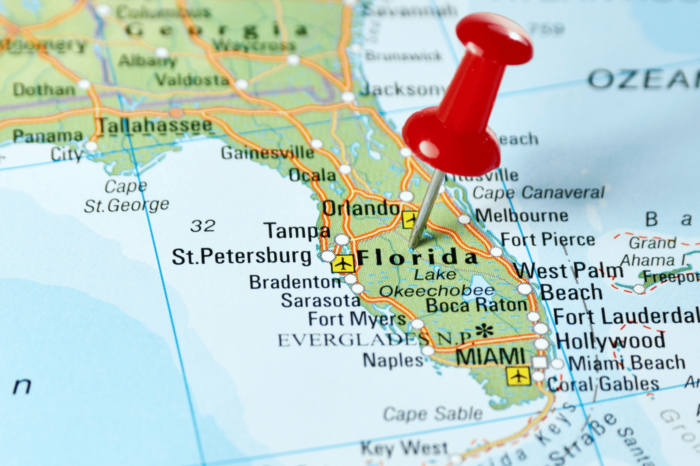Except in Florida, There’s Really No (High School) Debate
Sunshine State’s commitment to civics education and true debates stands out
Ex-high school debaters, a warning: the following may induce a nostalgia-twinged sadness.
Those who participated in civic debate through secondary school likely have fond memories of two sides engaging faithfully on an arguable, relevant topic with each side’s positions backed up by evidence and sober analysis of the facts at hand.
Perhaps you debated the legacy of a Constitutional amendment or the viability of a political critique. Whatever the substance, your debate exercise was likely only as good as the educator leading it. If they were engaged and motivated, so were you.
For decades, debate leaders have valued the free exchange of ideas; many taught their pupils the importance of viewing competing opinions with good faith while staying true to a to a common set of facts and evidence. For participants and spectators alike, these standards helped build civic knowledge and valuable argumentative skills.
But in much of the country — to borrow a line from the civic tradition that is our President’s annual State of the Union address — the state of America’s High school debate is not strong.
Teachers and education professionals have become indoctrinated in an identity-obsessed, grievance-seeking body politic. Their reductive frameworks bifurcate Americans into categories of oppressors and oppressed, divorcing the populace from the common ideals and cultural heritage that unite us all.
In classrooms, this cruel polemic appears in inaccurate teaching materials and group activities that celebrate naive activism instead of our country’s unique civic history.
In debate programs, like those run by the National Speech and Debate Association (NSDA), it permeates everything from the argument’s form and substance to the judging criteria.
The NSDA gives students biased topics like “how can the U.S. government address environmental racism?” that leave no intellectual room for counterargument, lest the debater be labeled an enemy of the environment, or worse. Judging this question might be someone like Lila Lavender, a self-described “Marxist-Leninist-Maoist. . . . [who] cannot check the revolutionary proletarian science at the door when judging.”
For those wondering whether a “Marxist-Leninist-Maoist” is best suited to judge impartially two opposing political arguments, allow Ms. Lavender to answer herself. She says openly that she “will no longer evaluate and thus never vote for rightest capitalist-imperialist positions/arguments,” examples of which include “capitalism good,” “neoliberalism good,” “bourgeois nationalism” and even “normalizing Israel.”
Under such blatantly ideological pretenses, can debaters without hammer and sickle flags at home enter competitions believing that they’ll be judged on the quality of their argument?
Fortunately, not every debate program is subject to the ideological limitations and hostility of Ms. Lavender and the NSDA.
Just this month, some 400 students from around the country gathered in Orlando, Florida for the state’s third annual “Great Debate” national civics competition, where their argumentative skills were tested in programs for Congressional debate and general public speaking. Rather than pander ideologically to a panel of self-righteous judges, students must thoroughly research debatable positions and are actually expected to engage with those who disagree.

Source: The Florida Civics and Debate Initiative – @civicsanddebate on X
The Congressional debate category asks students to submit and debate legislation on issues from the founding era and our Constitution. In the public speaking category, students discuss the enduring legacies of America’s Bill of Rights and unique doctrine of federalism.
The Orlando competition is part of the state’s Civics and Debate Initiative, a broader governmental effort that has increased training for civics teachers, even offering bonuses to those who participate. Florida’s civics initiative has also improved curricular standards by making them more “softly bipartisan,” according to Pioneer’s latest book, Restoring the City on a Hill: U.S. History and Civics in America’s Schools.
Teaching students to value different ideas and a healthy political discourse helps them become better analysts and thinkers. These values are no less important than the skills of thorough academic research that debaters have honed for decades.
Maybe ours have something to learn from the Sunshine State.
Jude Iredell is a Roger Perry Civics Intern with the Pioneer Institute. He is a senior at Pomona College pursuing a bachelor’s in history.



